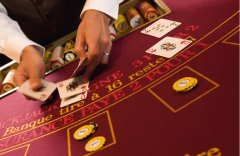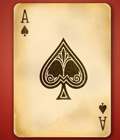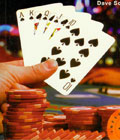玩扑克牌中的违规规则
违规行为,是相对于游戏的规则而言。如打一张牌,而还不是轮到你发牌或者这不属于常规的任何行动。
许多官方纸牌游戏的规则中,指定各种违规行为的处罚规则占据着比指定规则更多的页面。要记住这是乏味的,需要认真玩过游戏才行。打算在一个较高的水平上玩一种纸牌游戏的玩家们在开始之前,对比赛中所有要使用的犯规刑罚都要表示同意。自己自由打牌时,这通常只需遵守内部定的规则即可。比赛中,在仲裁有疑问的情况下,赛事总监在必要的时候需要执行相关规则。
如果一个玩家故意打破游戏规则,那么这就是一种欺骗行为。大多数选手将拒绝与一个被人知晓的作弊玩家玩牌。因此,本节的其余部分是关于偶然的违规行为,是由无知,动作笨拙,注意力不集中等造成的。
游戏都有同一玩法,是一组的玩家之间的反复循环。先例已经建立特定规则来规定发生违规行为应如何处理。例如,“希拉刚刚没有轮到她就打出一个卡。而上周我们同意乔这样做… …等等。”这样先例的设置往往在玩家群体之间建立,并作为“内部守则”的一部分。要成为正式的内部规则,已说过。因此,对一些游戏,都要有一个“正确”的违规处理规则的方法。但对于许多游戏,不是非常的正规,就没有标准的方式来处理违规行为。
在许多情况下,也要看有没有必要在处理违规行为发生后再设立特殊规则。作为一般原则,打破了规则的人不应该在其中获益的,其他玩家不应该由此利益受损。有一个则例外,在有固定的合作伙伴关系的游戏中,可能被认为这种情况对打破了规则的人的合作伙伴也没有好处。一个偶然的违规行为的处罚,应该被视为合理的,这与负责人有没有可能因此受益是一致的。
译文
Rule infractionsAn infraction is any action which is against the rules of the game, such as playing a card when it is not one's turn to play or the accidental exposure of a card.
In many official sets of rules for card games, the rules specifying the penalties for various infractions occupy more pages than the rules specifying how to play correctly. This is tedious, but necessary for games that are played seriously. Players who intend to play a card game at a high level generally ensure before beginning that all agree on the penalties to be used. When playing privately, this will normally be a question of agreeing house rules. In a tournament there will probably be a tournament director who will enforce the rules when required and arbitrate in cases of doubt.
If a player breaks the rules of a game deliberately, this is cheating. Most card players would refuse to play cards with a known cheat. The rest of this section is therefore about accidental infractions, caused by ignorance, clumsiness, inattention, etc.
As the same game is played repeatedly among a group of players, precedents build up about how a particular infraction of the rules should be handled. For example, "Sheila just led a card when it wasn't her turn. Last week when Jo did that, we agreed … etc." Sets of such precedents tend to become established among groups of players, and to be regarded as part of the house rules. Sets of house rules become formalized, as described in the previous section. Therefore, for some games, there is a "proper" way of handling infractions of the rules. But for many games, without governing bodies, there is no standard way of handling infractions.
In many circumstances, there is no need for special rules dealing with what happens after an infraction. As a general principle, the person who broke a rule should not benefit by it, and the other players should not lose by it. An exception to this may be made in games with fixed partnerships, in which it may be felt that the partner(s) of the person who broke a rule should also not benefit. The penalty for an accidental infraction should be as mild as reasonable, consistent with there being no possible benefit to the person responsible.
相关推荐
随机专题



 您现在的位置:
您现在的位置: 
 重庆11选5风险小、中奖易的投注方法
重庆11选5风险小、中奖易的投注方法 百家乐这样玩才是决胜关键!
百家乐这样玩才是决胜关键! 现金三张牌游戏在线玩玩法
现金三张牌游戏在线玩玩法 斗地主新玩法
斗地主新玩法


